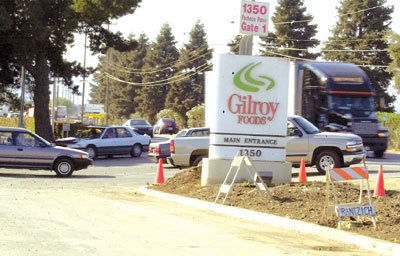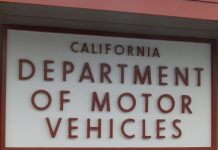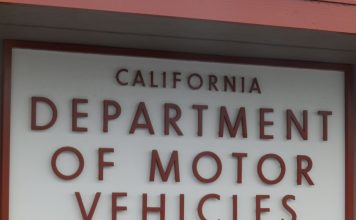GILROY
– If worst-case scenarios come true, reshuffling of highway
projects due to drops in sales tax revenues from the slow economy
could mean years of delays for portions of an interchange and
widening project crucial to serve major regional shopping centers
and a major employer on Gilroy’s east side.
To Gilroy Mayor Tom Springer, the money that’s supposed to go to
the projects is as good as gone
– meaning worries about potentially horrendous traffic snarls at
the shopping centers and Gilroy Foods.
GILROY – If worst-case scenarios come true, reshuffling of highway projects due to drops in sales tax revenues from the slow economy could mean years of delays for portions of an interchange and widening project crucial to serve major regional shopping centers and a major employer on Gilroy’s east side.
To Gilroy Mayor Tom Springer, the money that’s supposed to go to the projects is as good as gone – meaning worries about potentially horrendous traffic snarls at the shopping centers and Gilroy Foods.
“The projects will not be funded,” he said Thursday. “The money has shifted up north and we won’t get our roadway segment.”
But county leaders and transportation officials say there’s no reason to panic yet: with key information and decisions still yet to come, the sales-tax drops could mean only delays of a few months – or none at all.
“Nobody’s taken money away from anyone else,” said District 1 County Supervisor Don Gage. “We’re trying to make good on everything we said we’d do.”
At issue is at least $6 million in funding for several individual projects at the junction of U.S. 101 and state Highway 152 and along the 152 roadway itself as it heads east toward Pacheco Pass.
A signalization and widening project that’s already begun to serve the two shopping centers – especially the Pacheco Pass Center and its new Lowe’s and Costco stores on the north side where 101 and 152 meet – will not be effected, officials said. That project would allow drivers to turn into the shopping centers from 152.
But several other parts of the project have been cast into uncertainty, including a new interchange at 101 and 152 and widening work eastward on 152 that’s meant to allow traffic to move more smoothly through the area, and a new stoplight and turn area serving the Gilroy Foods plant east of the shopping centers.
Under a new priority system adopted by county supervisors last month, those projects are now lumped into a category of other roadway improvements that county analysts have projected could receive only partial funding from the declining Measure B sales tax monies.
Under the new priority system, funding construction of an $82 million interchange at U.S. 101 and state Highway 85 in Mountain View is top dog and would be first in line for the Measure B monies.
In the second tier of priorities would be another $60 million in various projects, ranging from congestion relief among North County expressways, traffic signal synchronization and bicycle paths.
The 152 projects in question are lumped into a third tier of $52 million in projects where only partial funding is projected. That tier also includes work on Highway 17 and several items of Caltrain funding.
Another $1 million in intersection improvements at 152 and Ferguson Road are currently even lower on the totem pole, into a fifth-tier priority category where no projected funding exists.
According to Measure B program administrator Jeff Davis, engineering, design and environmental studies may continue on those projects. But the county has decided to wait until more updated sales tax projections come out early next year in order to figure out which of the projects can be afforded under Measure B funds and authorized for construction.
“The staff is very conservative,” Davis said Thursday. “The last thing we want to do is move ahead through a project and find out a year or two later we can’t finish something we started in construction.”
It’s premature to say how much money will be available then for the Tier Three projects until the county sees the numbers, Davis said.
“Unless we get a very bad revenue quarter in December, assuming revenues are on target, I would say a good portion of the Tier Three may be fundable,” he said. “But that means that the Board (of supervisors) will have to prioritize those projects.”
Springer said city officials have been presented a more dire picture: there’s no money to fund construction.
“As far as we know, these are delayed indefinitely and not being done,” he said.
While the city will ensure the Newman and Regency centers continue, Springer said, it would mean either finding money somewhere else to pay for the rest of the 152 projects – or else adopting a city measure that says benefits from east side development are too important to be slowed or effected by the traffic impacts.
And he’s concerned that Gilroy Foods – which has been waiting for improvements out front of its plant for years – could become frustrated and close their facility.
“The bottom line is we want the $6 million (back),” he said.
But Gage said there’s no reason to panic – the county didn’t move the $6 million out of 152, it just hasn’t let the contracts go (out) yet until the numbers come back.
“Six million, in comparison to millions on Measure B – that’s a very small amount we can find …” he noted. “No one is shortchanging South County.”














